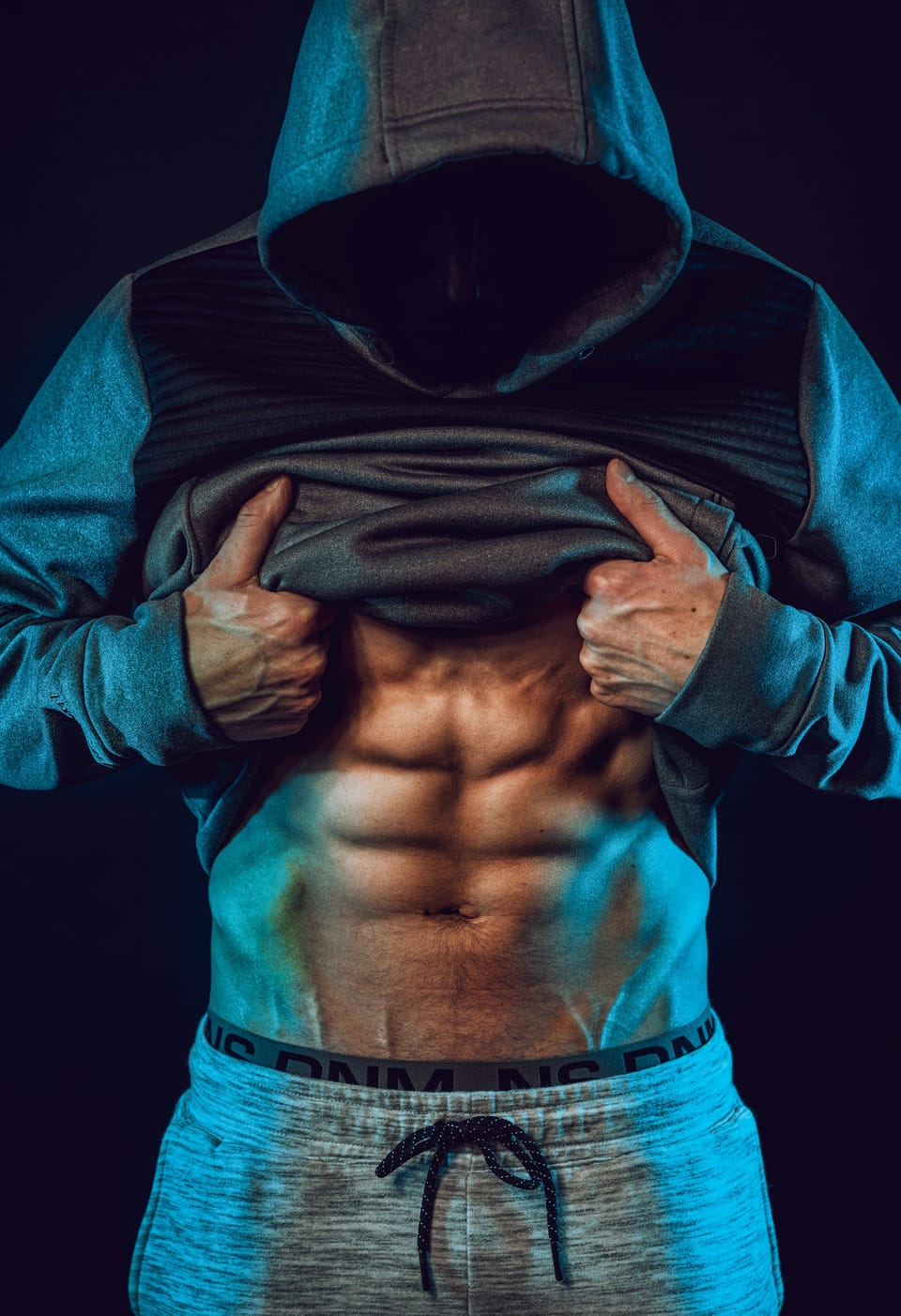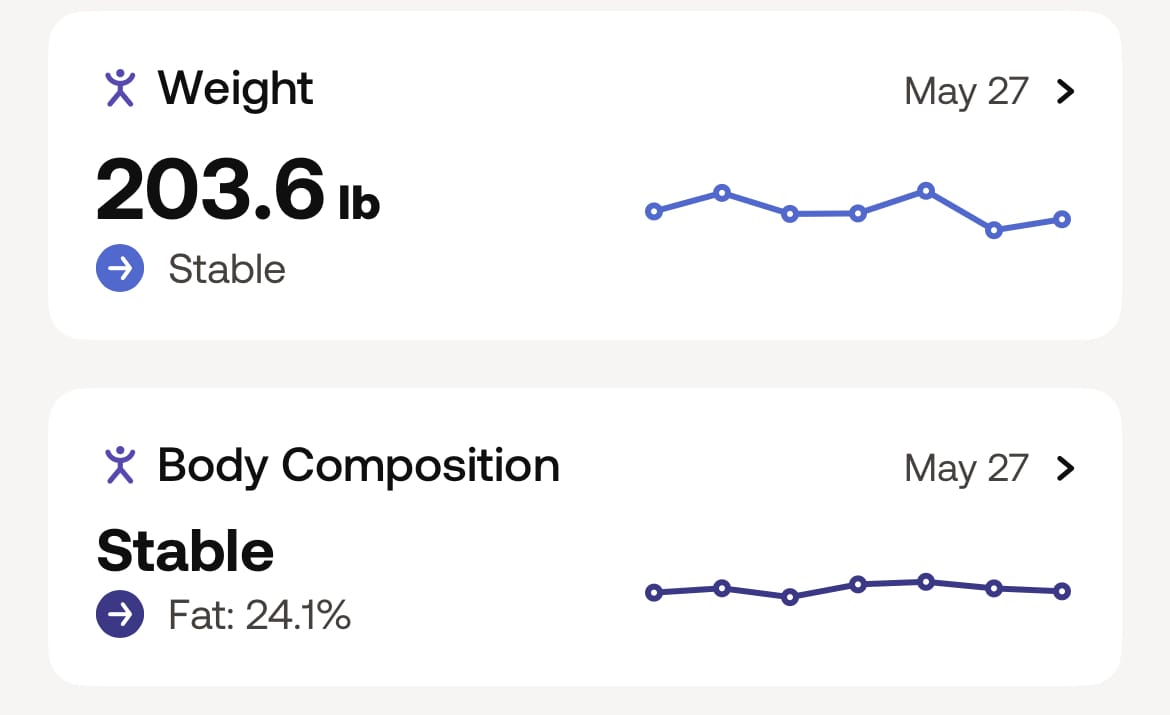I'm going to fit into these jeans!

In 2020, I began wearing sweatpants. The office where I worked closed due to the COVID-19 pandemic. Sweatpants, as my 10-year-old self would tell me, are more comfortable than jeans or slacks, and there was no reason to be uncomfortable when I wasn't going out of the house. Sweatpants were already a staple in my kids' wardrobes, and companies like Nike and Under Armour made stylish, athletic versions.
Once people started congregating in public again, I kept the sweatpants. After the pandemic, my office never reopened, and my wardrobe choice didn't seem like a big deal. I even branched out into other comfortable options such as joggers. I ditched my suits a decade ago when I transitioned to a new job that didn't require formal business attire. Now that I no longer had an office, casual clothing such as jeans and polos remained in my closet. Comfort was king, and sweatpants made sense in every situation.
But today, I feel different. It's been a good five years, but I'm tired of wearing sweatpants sometimes. Fashion trends and tastes change, and I no longer want to wear them in many casual settings outside the house. However, moving away from sweatpants presents another issue: My bigger waistline. Sweatpants are forgiving, like a loving family member who loves you unconditionally. Jeans are a constant reminder that I've let myself get a little bigger as I've gotten older.
My weight fluctuates depending on my diet and exercise regimen. But I've learned through my struggles that losing body fat is much harder in my 40s than when I was younger. In my early 30s, I still recall being able to lose 30 lbs and get back my 6-pack abs within a few months of commitment and hard work. In my 40s, progress has been much slower. The plateaus are harder to overcome, and one night of terrible eating is demoralizing when I see weeks of progress lost.
My struggles are not due to a lack of exercise or effort. Since the beginning of 2024, I have completed two marathons and multiple shorter-distance races, covering over 2,400 miles. I also spin and lift weights, although the latter has decreased as my running mileage has increased. It's not willpower. People often struggle to control their weight, and I've come to realize that it requires a conscious effort on my part to make the informed choices necessary to achieve my goals. When I say 'conscious effort', I mean a change in my daily habits that makes willpower less relevant.
But why am I so hung up on jeans?
I started tracking my food about a month ago, but I'm learning that tracking isn't the solution. It's only an action that may help in a solution. In a moment of frustration on a bad day, I looked in my closet and thought to myself, "I'm going to fit into these f*cking jeans!" I immediately felt a little better after this moment. Working on myself to fit into my old jeans feels more worthwhile than hitting some arbitrary weight goal.
Jeans are also a tangible goal. I can see the size on the tag. I can feel how good they feel when I put them on. But jeans are not the long-term goal. Achieving a healthy weight is a way to reduce the risk of chronic disease later in life. People begin to develop chronic health issues as they get older. Many health-related problems start to occur once a person enters their 50s, and the cause of these issues is due to actions taken over many years.
Long-term, it's not about the jeans. It's about feeling better and putting myself in the best position to live a long, healthy life.
Next Steps
I'm 6'2" and based on Body Mass Index (BMI), my highest weight should be 195 pounds. Yesterday, I weighed 203.6 pounds. My weight has fluctuated between 201 pounds and 208 pounds over the last few months.
My initial goal is to lose weight and reach a target weight of 195 pounds. But to fit into my jeans, I believe I would need to significantly reduce my body fat, which may help lower my weight even further to 185 pounds.

I don't feel I'm fat. If you walked past me while out in public, you wouldn't notice me. I probably have a "dad bod," but I feel that may be an exaggeration. However, my body composition statistic implies to me that I have too much body fat. It fluctuates between 23 and 25 percent, and I find that a little embarrassing. I struggle to include that metric in this post, but I've decided to include it because I have to show my starting point if I want to celebrate the end point when I achieve it.
Writing about wanting to lose 9 pounds may be a little extreme. Many people can probably easily lose that much weight in a couple of months. As I wrote earlier, I used to be one of those people. But my body has changed. My lifestyle has changed. I hope that by sharing my progress, it forces some level of accountability when I feel like quitting. I have other ideas, and I'll share more as I get started.
Wish me luck!